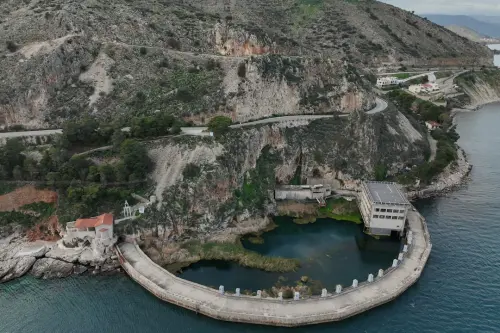In the southern Greek region of Argolida, water leakage from an irrigation canal is causing issues for orange tree plantations. Significant water loss occurs through old underground pipes. During summer, when reservoir levels drop, officials in Nafplion caution against using the contaminated brackish backup water.
Residents like jeweler Lydia Sarakinioti opt for bottled water for all purposes due to the noticeable difference in quality. The EU recently initiated a campaign to address climate change-related water crises affecting 38% of its population, setting a deadline for countries to evaluate leaks before enforcing legal standards.
This ambitious water security program, estimated to cost hundreds of billions of euros, reflects the escalating climate challenges in southern Europe. Greece, facing record temperatures and prolonged droughts, demonstrates the complexities and expenses involved in implementing change.
The country is struggling with substantial water loss due to outdated infrastructure and theft, exacerbated by the aftermath of the 2009-18 financial crisis. Despite significant investments in water infrastructure, regions like Argolida require more substantial improvements to meet demand.
Officials stress the urgency of repairing leakages surpassing 80% in some areas before deploying additional solutions like desalination units. The need for comprehensive fixes in infrastructure is paramount to effectively addressing water scarcity and decreasing water quality.
In towns like Nafplion and Ermioni, insufficient access to clean drinking water forces residents to rely on bottled water, aggravating environmental concerns. Farmers facing water shortages resort to drilling deep wells, often yielding saline water due to seawater intrusion in aquifers.
The predicament highlights the necessity of strategic interventions to mitigate water scarcity and ensure water quality for residents and agricultural needs in Greece.
